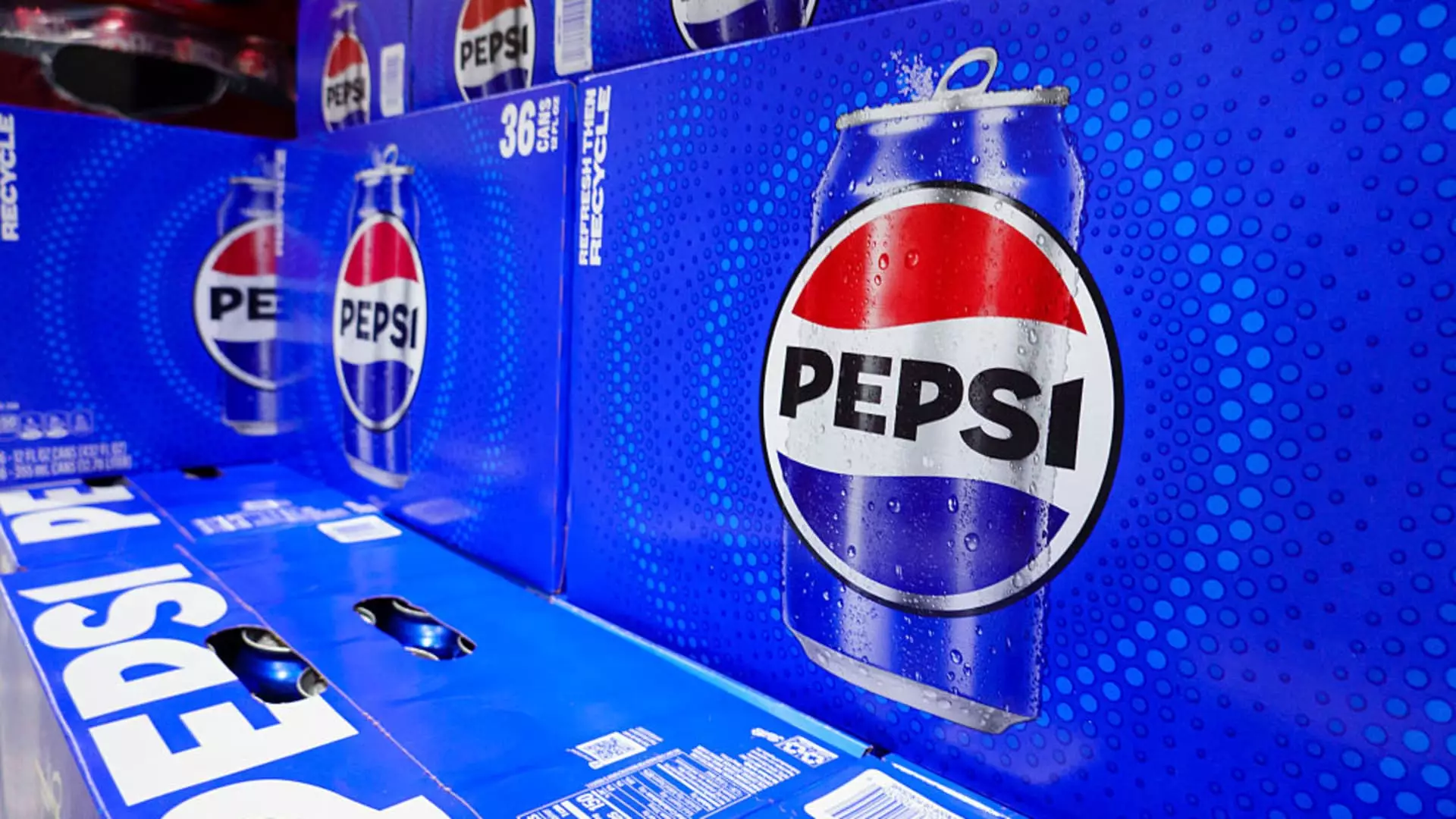PepsiCo’s latest earnings report offers a superficially optimistic narrative that masks deeper vulnerabilities within its business model. While the revenues topped analyst expectations, the underlying figures tell a story of stagnation and tentative recovery — far from the robust growth many shareholders crave. The company’s grossly inflated positioning as a resilient giant in the snack and beverage industry overlooks the reality that consumer preferences are shifting faster than Pepsi can adapt. The 1% increase in overall net sales, coupled with a mere 2.1% organic revenue boost, reveals a company struggling to keep pace with a rapidly changing market environment. Behind the veneer of numbers lies a fragile enterprise grappling with declining volumes, especially in North America, where a 1.5% decrease in food volume and a 2% drop in beverage consumption paint a discouraging picture. The discrepancy between upbeat official commentary and actual performance highlights a consistent pattern: Pepsi’s strategic responses are reactive rather than innovative.
The Illusion of Turning the Tide
Pepsi’s leadership remains optimistic that the sales slump will reverse as new strategies take hold, but the evidence suggests otherwise. Executive claims about “improving” North American demand and hope for a rebound are overly optimistic or perhaps even delusional. The company’s focus on healthier products, multicultural offerings, and premium snacking tends to resemble a desperate attempt to retrofit a declining core. While efforts to relaunch favorites like Lay’s and Tostitos might boost short-term relevance, they don’t address the fundamental issue — an aging product portfolio that no longer resonates with a younger, more health-conscious consumer base. Additionally, the plan to lean into protein trends and multicultural products is a step in the right direction, but it risks being a superficial patch rather than a sustainable solution. Consumers today are no longer simply seeking healthier options; they demand authenticity, transparency, and innovation. Pepsi’s current initiatives feel more like box-checking exercises than genuine transformations.
The Cost-Cutting Conundrum and Its Consequences
Pepsi’s aggressive cost-cutting measures — shutting down manufacturing plants, streamlining logistics, and re-evaluating marketing spend — underscore a desperation to protect profit margins amid declining volumes. However, these tactics threaten long-term brand strength and customer loyalty. Closing plants might improve immediate margins, but it also risks reducing the availability and freshness of products, which can alienate loyal consumers. Cutting marketing budgets and seeking efficiencies may boost short-term results, but such moves often come at the expense of brand equity. The company’s approach suggests a too-narrow focus on financial engineering rather than genuine growth initiatives. If Pepsi continues to prioritize cost-cutting over innovation and consumer engagement, it risks becoming less relevant in a market increasingly dominated by nimble competitors who understand that consumer trust is earned through authenticity, not just price advantages or efficiency.
The Fragile Future of a Market Leader
Pepsi’s full-year outlook remains cautiously optimistic, but the reality is that the company operates in a highly volatile environment. The mention of tariffs, economic uncertainty, and cautious consumers signals an awareness of systemic risks, yet there’s little evidence of strategic daring to counteract them. Instead, the company appears to rely on incremental tweaks rather than transformative change. This stance, while understandable given shareholder pressures, risks turning Pepsi into a passive observer of its own market. Its efforts to optimize spending and eliminate overlaps might preserve margins temporarily, but they do little to position the company as a forward-thinking innovator. In a world where brands that embrace health, sustainability, and social consciousness lead the way, Pepsi’s conservative approach may leave it trailing behind more agile competitors.
Ultimately, PepsiCo’s latest earnings highlight a company that’s caught between its legacy and the need for fundamental reinvention. The strategic tweaks and cost cuts may provide some relief in the short term, but they fail to address the core challenge: how to stay relevant in a world where consumer values are shifting rapidly. Unless Pepsi embraces genuine innovation and signals a willingness to confront its systemic issues head-on, it risks becoming an also-ran rather than a true industry leader.

